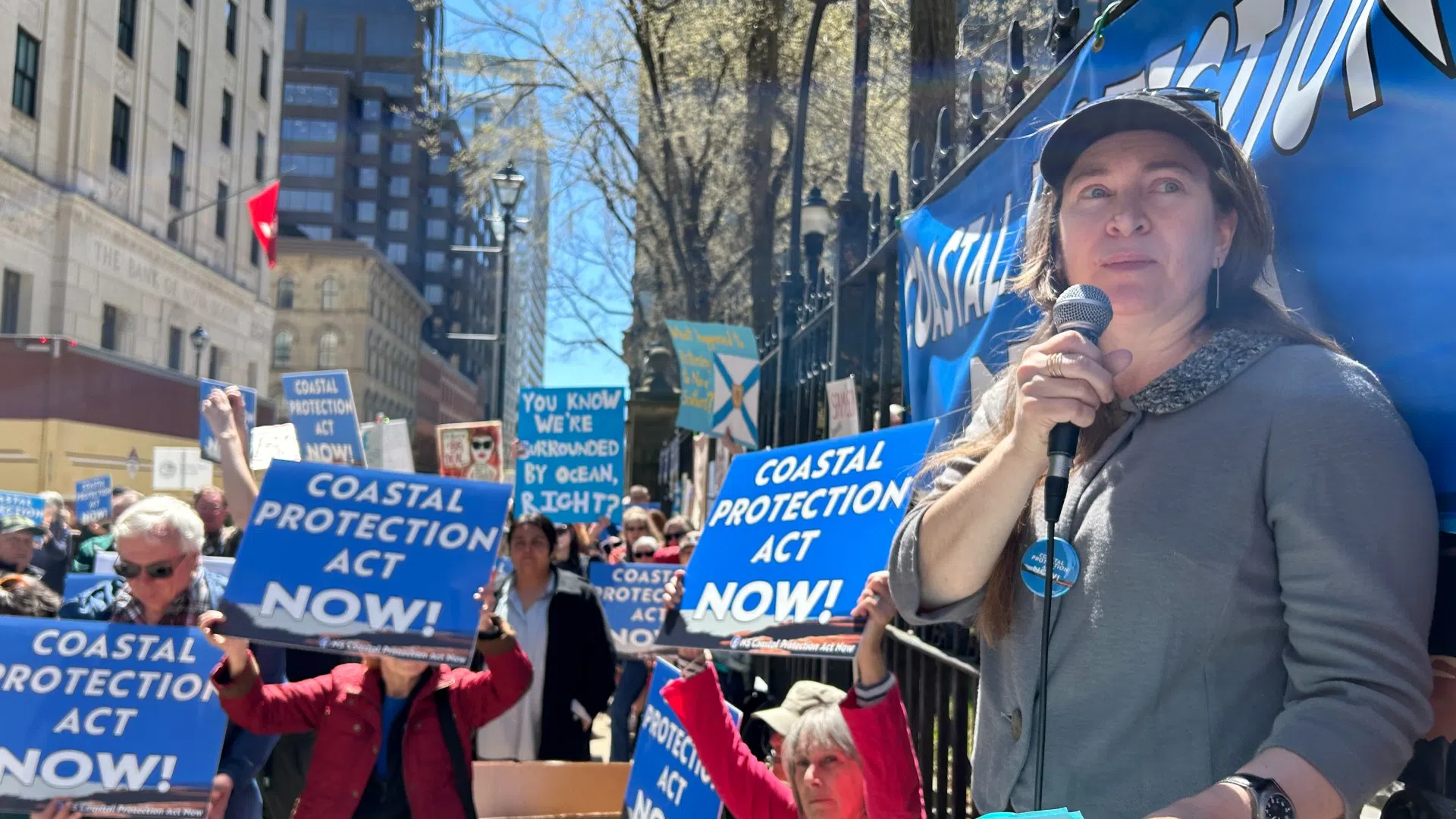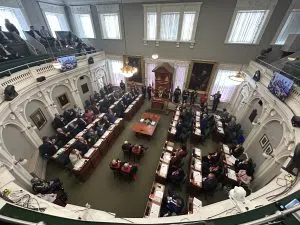About 300 people lined the street outside the Nova Scotia Legislature Wednesday afternoon to call on the government to implement the Coastal Protection Act.
The act was previously passed by all parties in 2019, but the provincial government scrapped the plan in February, which means municipalities are now responsible for creating their own coastal protection regulations.
Patricia Manuel is an environmental planner who taught at Dalhousie University for several decades. People have been working on creating coastal protection regulations for decades, but now they’ve been set back, she says.
“It’s extremely frustrating. I mean, so many people and a lot of money has been spent on developing this Coastal Protection Act,” says Manuel.

Patricia Manuel says she’s really frustrated because people have worked for decades to create coastal protection legislation in the province, but the government scrapped those plans. (Jacob Moore/Acadia Broadcasting)
The Coastal Protection Act would have let the government regulate coastal developments. In place of this, the government created the Coastal Protection Action Plan, a resource bank that provides guidelines for coastal development without any regulation.
The government says they decided to scrap the original act because they didn’t want to tell people what to do with their land.
“Imagine letting the public build in a known hazard zone,” says Maggy Burns, executive director of the Ecology Action Centre. “I see this as a public safety issue.”
The action centre, Nature Nova Scotia and the Nova Scotia Coastal Coalition organized the rally.
Burns says the province needs the coastal protection act because climate change issues will only affect the province more. A lot of municipalities in the province are small, and they may not be able to create complex rules around coastline development, she says.
The province plans to use a coastal protection coordinator to help municipalities with coastal development issues.
Some municipalities were working on this before but stopped because the province decided to create the regulations. Now, Burns says, it’s like they’ve gone back ten years.
All the parties in the legislature agreed on the act in 2019. It just needed the regulations to go along with it, she says.

A speaker shouts into the microphone at a rally for the Coastal Protection Act outside the Nova Scotia Legislature on May 8, 2024. (Jacob Moore/Acadia Broadcasting)
“It’s ready to roll. [The government] just chickened out,” says Burns.
“It makes no sense to me. Insurance companies want it. Citizens want it. It’s logical. It happens in many jurisdictions.”
Robert Parker, Warden for the Municipality of Pictou County, says the premier might have provided guidelines, but that isn’t enough.
“That’s no more the right thing to do than say, ‘Here’s the information on driving on the highway. You pick the speed you think you should go,'” says Parker.
Claudia Chender, leader of the Nova Scotia New Democratic Party, says political pressure, like standing outside the legislature with signs, is the only way to get the government to notice and reinstate the Coastal Protection Act.
She claims the Houston government is listening to a small group of people who don’t want regulations on their properties, but many people across the province would prefer regulations for coastline development.
Zach Churchill, leader of the Liberal opposition party, says this is not only a safety issue, but it would impact how taxpayers and the government are liable when major weather events, like hurricane Fiona, damage property.
“Tim Houston broke his word to the public. He said he was going to pass the Coastal Protection Act, and he’s failed to do that,” says Churchill.














Comments